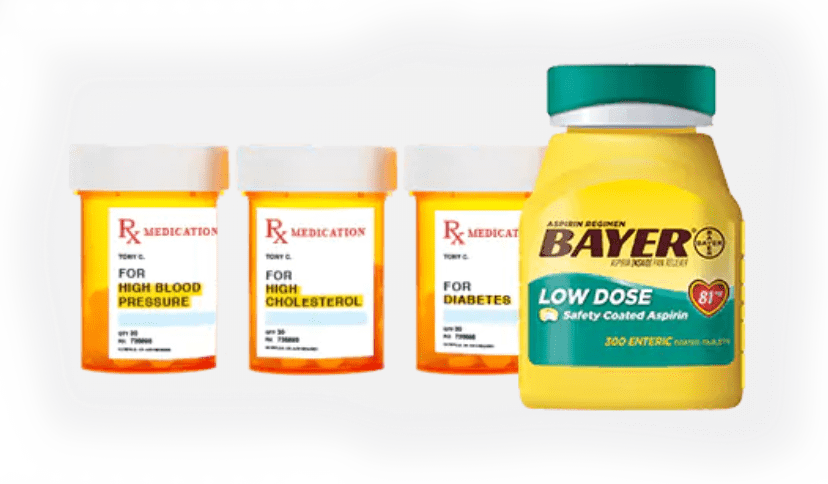LEARN MORE ABOUT BAYER® ASPIRIN USE
With a variety Bayer® Aspirin products to choose from, it’s important to know which one is right for you. Which one(s) are intended for regimen use? What kind of aspirin do people use for pain? This page, along with guidance from your doctor where needed – will help you to find those answers.
Use the “compare” buttons to compare up to 2 products.
Aspirin is not appropriate for everyone, so be sure to talk to your doctor before you begin an aspirin regimen.
ASPIRIN USE: HEART REGIMEN
For heart attack survivors, a doctor-directed aspirin regimen can help reduce the risk of another heart attack by 31%.
Aspirin is not appropriate for everyone, so be sure to talk to your doctor before you begin an aspirin regimen.
ASPIRIN USE: STROKE PREVENTION REGIMEN
If you’ve had a clot-related (ischemic) stroke, your doctor may recommend an aspirin regimen, which can help reduce your risk of another clot-related (ischemic) stroke by 22%.
Aspirin is not appropriate for everyone, so be sure to talk to your doctor before you begin an aspirin regimen.
ASPIRIN USE: PAIN RELIEF
From headaches and backaches to muscle and minor arthritis pain, Bayer® Aspirin has been a pain reliever for more than 125 years.

CARRY ASPIRIN.
HELP SAVE A LIFE.
Do you know what to do the moment you suspect someone's having a heart attack?
In the event of a suspected heart attack, immediately call 9-1-1 and chew or crush and swallow aspirin as directed by a doctor.

MANAGING RISK:
WHY PRESCRIPTION MEDICATIONS MAY NOT BE ENOUGH
If you take prescription medications for high blood pressure, high cholesterol, and diabetes, they may not be enough to protect your heart. Talk to your doctor about whether these medications are enough for you and whether adding an aspirin regimen can help further reduce the risk of another heart attack or clot-related (ischemic) stroke.
Aspirin is not appropriate for everyone, so be sure to talk to your doctor before you begin an aspirin regimen.



